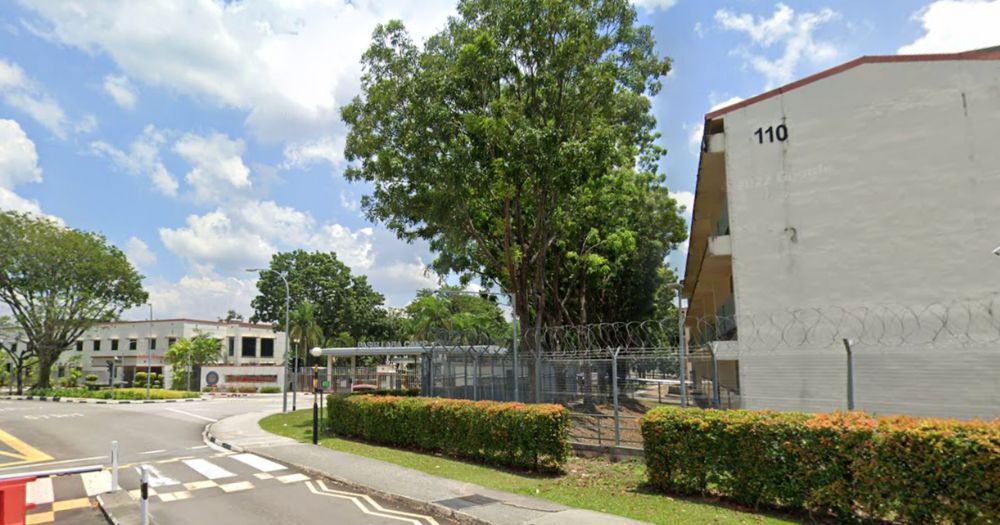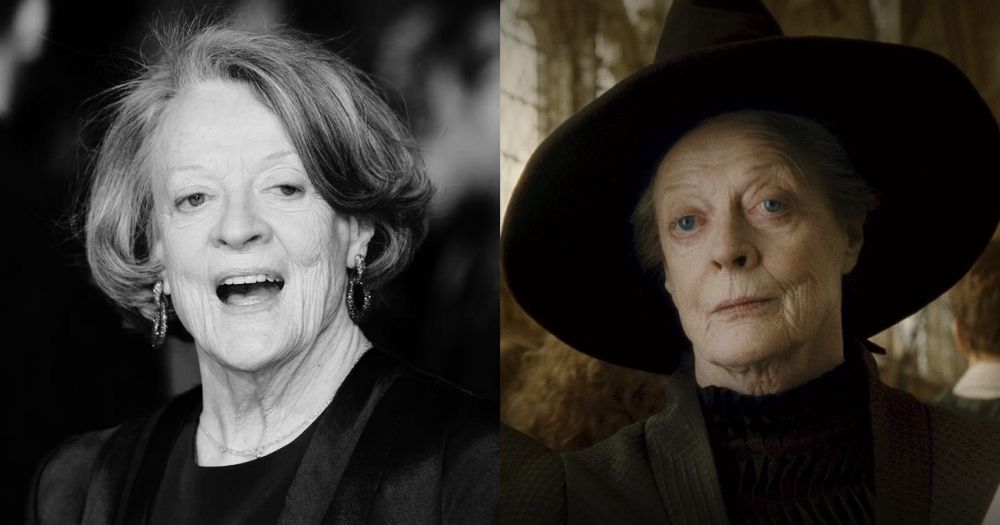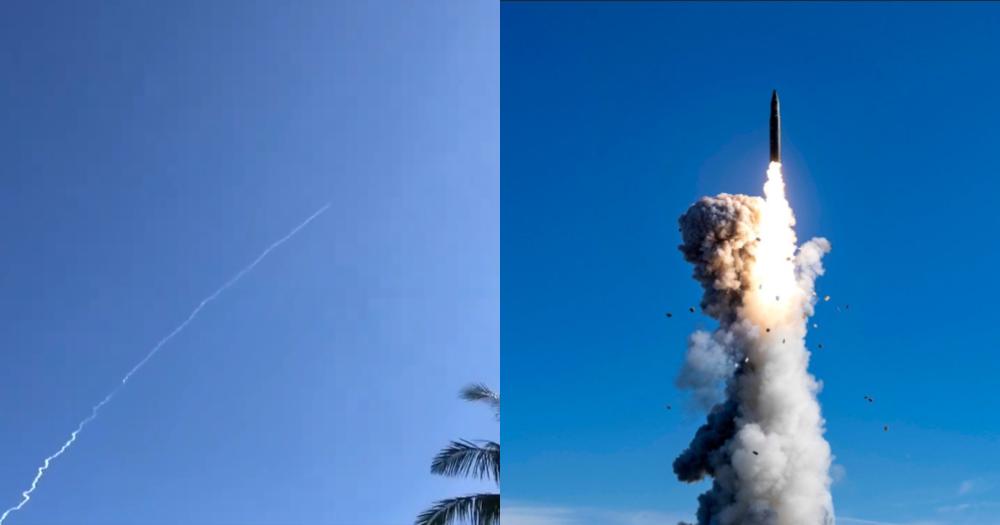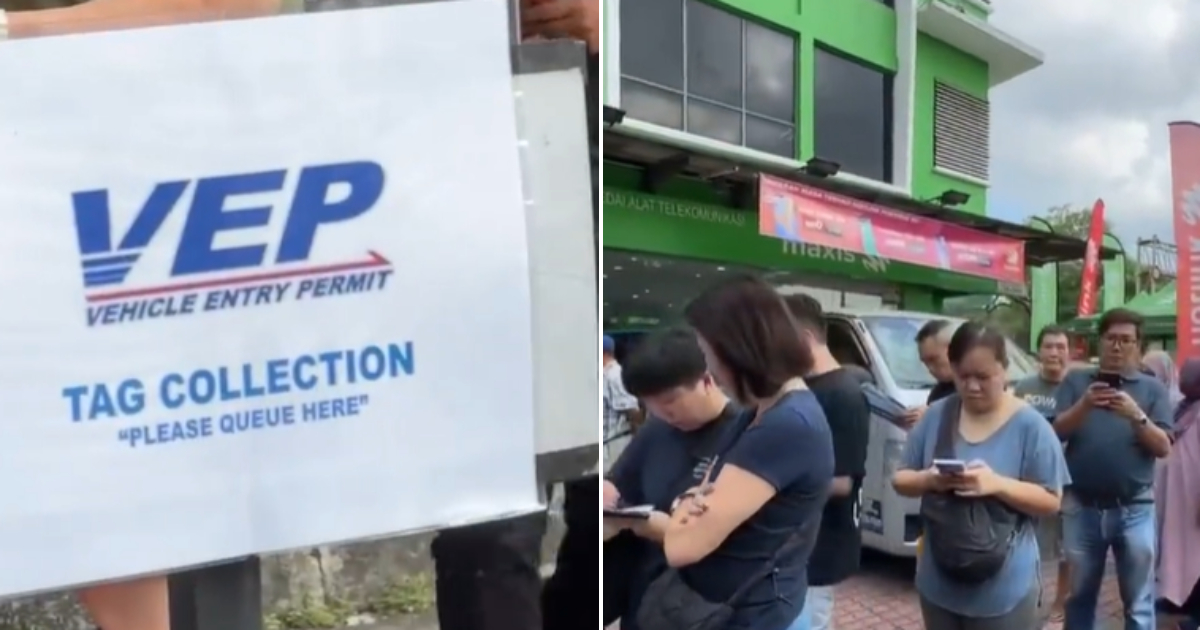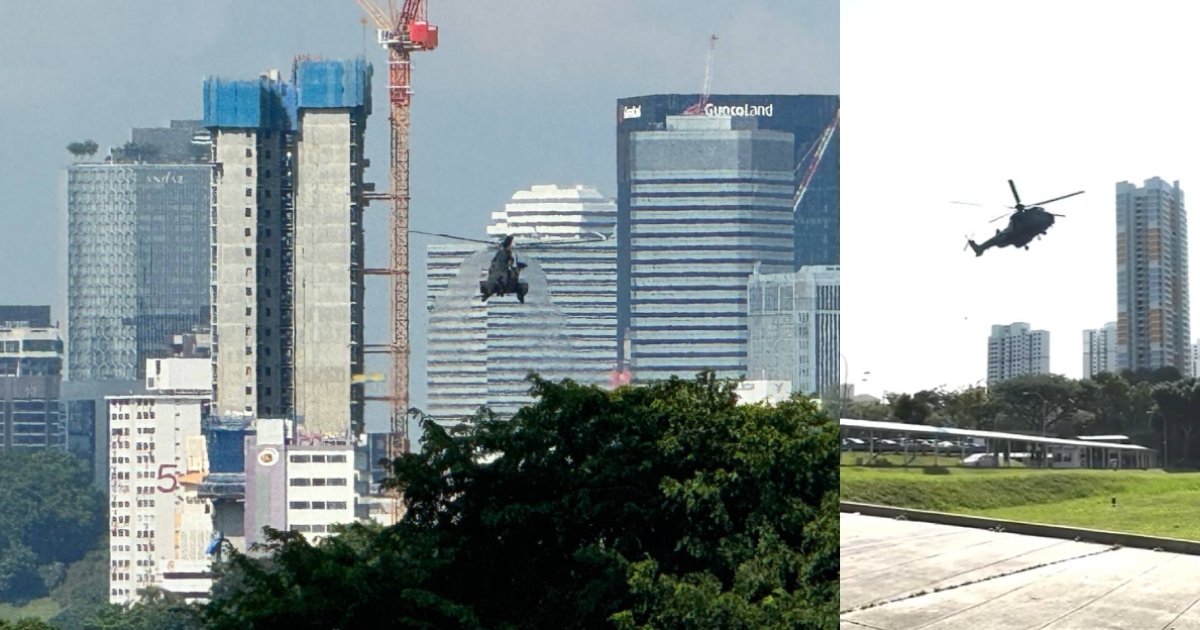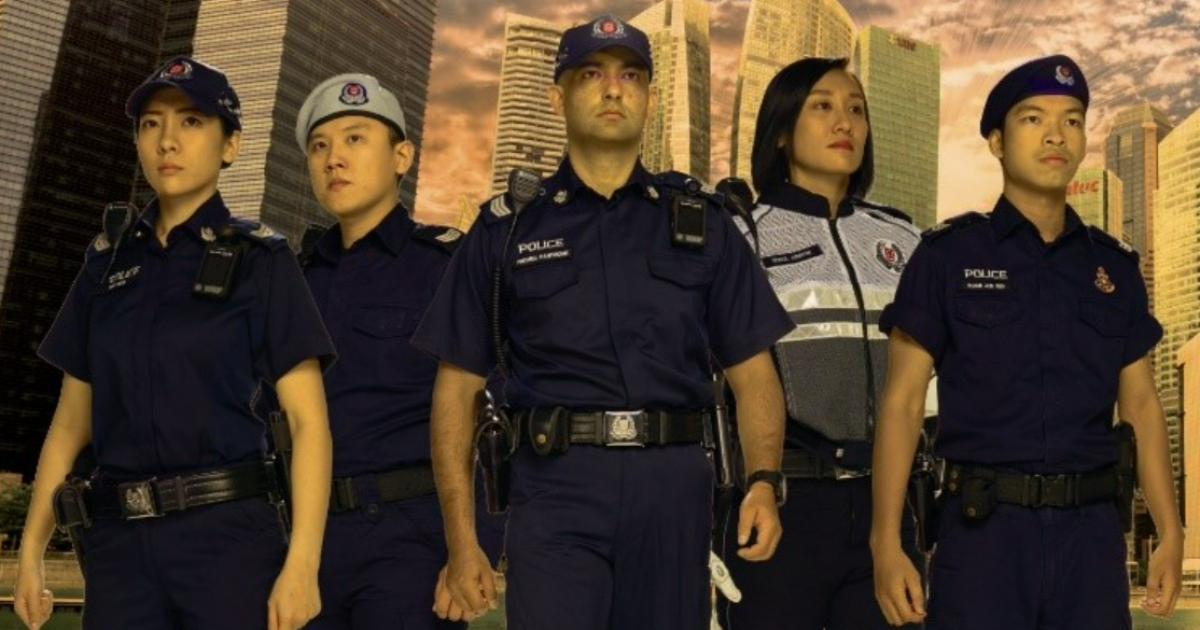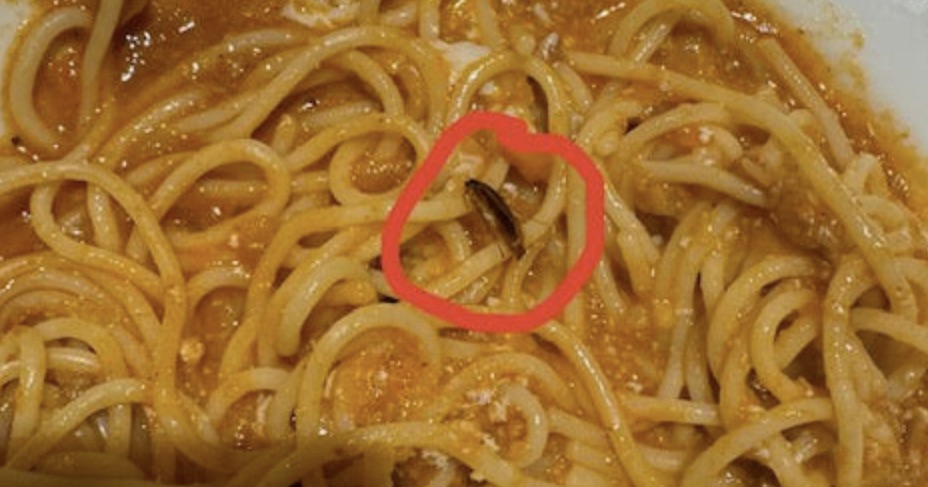Shanmugam on self-radicalised S'porean youth, 14: I sympathise with the Palestinian cause, but we can't allow terrorism
A former public servant, 33, was also issued an ISA order.
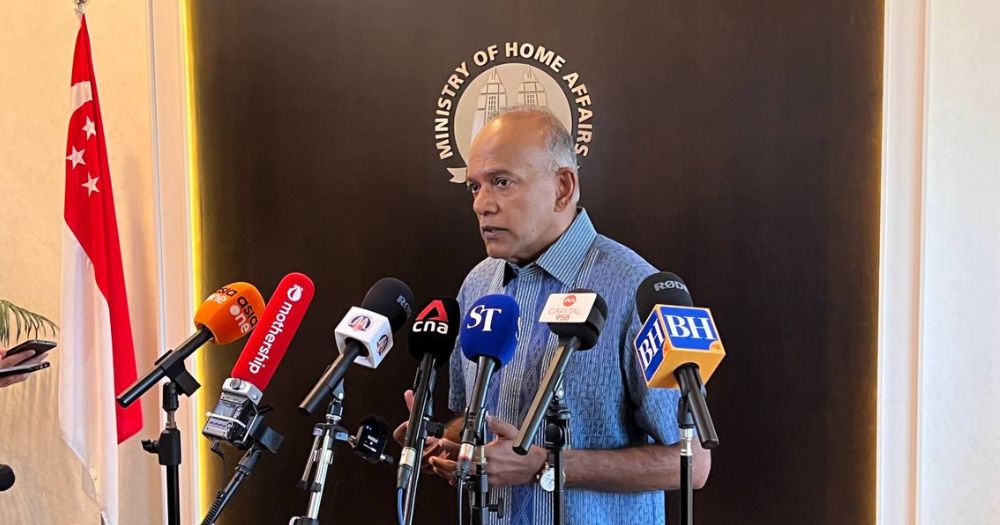
“I sympathise with the Palestinian cause,” Minister for Home Affairs and Law K Shanmugam said in a press conference on Jul. 15.
“But sympathy for any foreign cause cannot mean we can support or allow terrorism.”
Shanmugam was speaking to the media after the Internal Security Department (ISD) revealed that two Singaporeans had self-radicalised in the past two months because of the ongoing conflict between Israel and Hamas in the Gaza Strip.
Among the two Singaporeans is a 14-year-old, the youngest Singaporean to be issued with an order under the Internal Security Act (ISA).
The second Singaporean, An’nadya Binte An’nahari, 33, is the second public servant to be issued an ISA order.
Self-radicalisation of youth
In a press release on Jul. 15, ISD said both Singaporeans’s self-radicalisation process was triggered by the ongoing Israel-Hamas conflict.
The youth’s radicalisation occurred within a short span of months from Oct. 7, 2023, after extensively viewing online pro-Hamas content and news.
By January 2024, the youth was supportive of Palestinian militant groups and their violent acts.
He also believed that Hamas’s attacks on Oct. 7 were justified and that all "Zionists" were enemies to be killed.
The youth soon began adhering strictly to segregationist beliefs as he prepared to join the “Black Flag Army” (BFA), a prophesied Muslim army whose imagery has been misappropriated by terrorist groups in their struggle for power, according to ISD.
For example, he was of the view that celebrating birthdays and talking to his female classmates were forbidden under Islamic law.
Other than preparing physically to fight for the BFA, he also planned to save money by working part-time to fund his travel to Afghanistan, where he believed the BFA would emerge.
He was resolved to join the BFA even if the authorities or his family tried to stop him.
Tried to radicalise classmates
The youth tried, unsuccessfully, to radicalise several schoolmates as well.
He started an online chat group and invited six of his schoolmates to join, where he shared videos and links on armed violence, as well as several videos of himself as a terrorist fighter.
In these videos, which were inspired by his admiration for Hamas spokesperson Abu Ubaida, the youth warned against trusting non-Muslims and spoke about the virtues of dying righteously as a martyr for Islam.
Was willing to conduct attacks in Singapore
If unable to join the BFA, the youth were willing to conduct attacks in Singapore based on the BFA’s instructions.
He hoped to expand the membership of his online chat group to 60 to 100 people and aspired to conduct attacks against non-Muslim communities during their local festivals such as Chinese New Year, Christmas and Deepavali.
He hoped such attacks would instil fear amongst non-Muslims and deter them from such “un-Islamic” festivities, facilitating the establishment of an Islamic state in Singapore.
Rehabilitation programme
Investigations by ISD found that the youth acted alone and was unsuccessful in radicalising or recruiting his schoolmates.
His family members were unaware of his radicalisation, though his parents had noticed expressions of the youth’s increasingly segregationist beliefs.
However, they did not think it warranted intervention and assistance.
ISD shared that the youth will undergo religious counselling by the Religious Rehabilitation Group (RRG) to address the religious misperceptions that have contributed to his violent and extremist ideology.
He will also receive psychological counselling by an ISD psychologist to address the non-ideological factors that rendered him vulnerable to radicalisation.
Given his young age, he will be assigned with an RRG mentor, he added.
ISD officers will also be working closely with the youth’s family and school to ensure that he has adequate support to stay on track with his rehabilitation and that his studies will not be disrupted.
Self-radicalisation of 33-year-old woman
Similar to the youth, An’nadya’s radicalisation started after Hamas’s attacks against Israel on Oct. 7, 2023.
However, she first attracted security interest in May 2021 for online posts which had the potential to incite social disharmony.
She did not exhibit radical inclinations then, and had deleted her online posts after being advised by the authorities.
Despite being advised to be mindful of her social media activities, An’nadya did not heed the advice, ISD shared.
“Instead, she escalated her online activities to the point of participating in radicalisation.”
In April 2024, she came to the authorities’ attention for her online activities, which included threats to attack and kill Israelis.
Since the Oct. 7 attacks, she started watching online videos of the situation in Gaza, many of which showed Palestinians being killed
She also joined several social media groups, many of which shared information on military operations by Hamas and its military wing, AQB.
She had also supported the Axis of Resistance (AOR), a network of Islamist militant and terrorist organisations including Hamas, Al-Qassam Brigades (AQB), Hizbollah and the Houthis.
She viewed them as resistance fighters, despite knowing that they had been designated as terrorist organisations in several jurisdictions.
Participation in pro-AOR social media groups
An’nadya actively participated in several pro-AOR social media groups, where she would identify herself as a Singaporean and openly express her support for the AOR and their violent operations.
She frequently expressed her enmity towards Israel and Jews and made violent threats against them.
Beyond that, An’nadya also called for violence against Singapore.
An’nadya maintained close online contact with several foreign pro-AOR individuals from her chat groups and exchanged violent, extremist views in private messages with them.
In March 2024, one of her contacts invited her to join his new social media channel intended to spread awareness of the AOR’s military operations as an administrator.
She agreed and volunteered to draft a Standard Operating Procedure (SOP) for the channel, to ensure that the channel’s content remained focused on encouraging support for the AOR and its violent operations.
An’nadya tried to encourage her family members and friends to join the channel but was unsuccessful in recruiting them.
“An’nadya’s staunch support for the AOR and their violent operations and her willingness to spread propaganda to promote their cause render her a security concern,” ISD said.
They added that her close online contact with foreign extremist elements renders her vulnerable to being exploited or recruited for terrorist activities.
Overseas conflicts can impact domestic threat landscape
Shanmugam said the two cases highlight that overseas conflicts continue to impact Singapore’s national security and social harmony.
He noted that Singaporeans are “rightly” concerned about the situation in Gaza, with many sympathising with the Palestinian cause.
“I sympathise with the Palestinian cause. They should have their own country and not suffer like this.”
However, sympathy for any foreign cause cannot mean that we can support or allow terrorism, Shanmugam said.
The action was taken against the boy and An’nadya not because they supported Palestine but because of their support for armed violence, he explained.
ISD added that firm action will be taken against any individual in Singapore who supports, promotes, undertakes or makes preparations to undertake armed violence, regardless of how they rationalise such violence or where the violence takes place.
On why ISD decided to issue the two with ROs instead of taking them into custody, Shanmugam said that ISD assesses the threat to see if detention or something lower like a restriction order will be enough.
Under the RO, the two will not be able to travel overseas, they cannot change their residence without letting ISD know, and there are some restrictions on how they access social media.
“So you can see that we try and let them get on with their lives as far as possible, but at the same time, try and move them away from the path of radicalisation.,” he said.
Importance of early reporting
ISD also pointed out the importance of early reporting, saying that youth radicalisation is a pressing security concern.
“We must remain vigilant to signs that someone around us may have become radicalised and quickly seek help for them so that the authorities can intervene early to avert a tragedy,” ISD said.
ISD added that family members and friends are best placed to notice changes in behaviour and alert the authorities if they suspect their loved ones have been radicalised.
In the cases of the 14-year-old youth and An’nadya, both families had noticed shifts in their behaviour and views but did not recognise them as possible signs of radicalisation.
Here are some possible signs of radicalisation:
- Frequently surfing radical websites;
- Posting/sharing extremist views on social media platforms, such as expressing support/admiration for terrorists/terrorist groups as well as the use of violence;
- Sharing extremist views with friends and relatives;
- Making remarks that promote ill-will or hatred towards people of other races, religions or communities;
- Expressing intent to participate in acts of violence overseas or in Singapore;
- Inciting others to participate in acts of violence.
Those who suspect that a person has been radicalised should promptly contact the ISD Counter-Terrorism Centre hotline 1800-2626-473 (1800-2626-ISD).
Top image by Mothership
MORE STORIES







